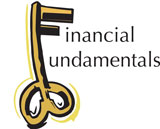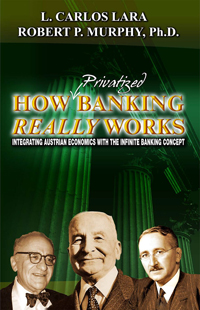
The Problem |
|---|
Are you willingly, but unknowingly and unnecessarily transferring your money to others -- who then lock it away out of your reach?
The problem is the way most of us think about our money.
What we have been taught is that there are really only two ways to purchase the large and valuable items that we want and need in our lives. The first way involves years of saving up so that we can pay cash and it is the honorable way of doing business that our forebears taught us.
Around the 1960's credit cards came into being, giving us the ability for immediate gratification. What we don't see as well, in this case, is that we put a mortgage on our future income. Using this method has become rampant, putting a huge number of families in debt to the bankers who created this way of making money for themselves.
Both of these ways of purchasing creates a loss for us, which means a lower net worth. When we pay cash, the money is taken from the bank where we were earning a little something on it, thus interrupting the compounding effect of that growth. Yes, over time we can put it back in and do it all over again, but each time we go through that process the money we lost would have grown to vast amounts, had we been able to let it keep working for us.
And over the course of time, paying interest to someone else is a cost or expense that has become a huge problem that most of us are trying to solve by earning unrealistic returns in the market on a very small part of our reserves.
So when we stew and worry about how we're going to pay for whatever it is we want and need, we're left with these two choices. We either pay interest to someone else for using their money, or we lose the money we could have earned, and would continue to earn over years, because we paid in cash.
A popular new movie demonstrates the problem:

916-806-1214
Articles
Nelson Nash Memorial issue of BankNotes
Why Banking Is No Ordinary Industry by Ryan Griggs
"IBC and Constant Compounding"
by Robert P. Murphy
• What Is Prosperity Economics?
• Review of the new movie "The Big Short"
• Kick-Start the Savings Habit
• The Federal Reserve Has Destroyed the Meaning of
Saving
by Eric Englund
• Card Tricks & Sleight of Hand from Lara-Murphy Report
• Bank (In)Security: 3 Reasons Banks Aren't as Safe as You Think
• A Higher Law
Excerpt from The Triumph of Liberty, by Jim Powell
